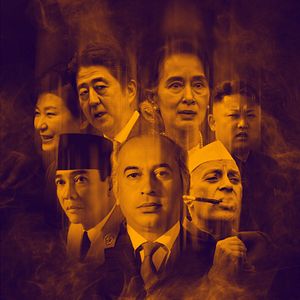The end of World War Two in Asia marked the end of the prewar elites and the end of Empire on the continent. From the ashes of war and colonialism rose new power centers, often based around extended families who took upon themselves the mantle of leadership, replacing the largely discredited pre-war rulers and colonial administrations. Before the war most of the families that made up the new elites had been outsiders; challengers, but often far from obvious candidates for leadership of newly forming and reforming nations. Yet they seized opportunities, found sponsors in the new Cold War era, and rose to prominence as symbols of a new postwar order. In 2015, the majority still resonate across their nations and the continent. Dynastic politics remains crucial to understanding postwar Asia while untangling the intestines of dynastic relationships is still a key indicator as to who the future leaders of Asia will be. The dynasties may not now always be entirely blood relations, but rather deeply co-dependent networks of families built up over the last 70 years.
For a while it looked as if the era of postwar dynastic politics was coming to an end. The Nehru-Gandhi dynasty and its political vehicle, Congress, took an electoral battering in the May 2014 Indian elections. Two months later in Indonesia Prabowo Subianto, the son-in-law of the former president Suharto, was bested in the polls by man-of-the-people Joko Widodo – the first president not to have emerged from Jakarta’s political elite. Elsewhere dynastic politics looked increasingly fragile.
Fourth-generation politician Benigno “Noynoy” Aquino III has faced repeated scandals reducing his popularity; similarly in Malaysia with Najib Razak – the son of former Prime Minister Abdul Razak. Elsewhere it seemed perhaps it was time to move on. Lee Kuan Yew died in March 2015 and the succession was not altogether clear; Kim Jong-un, grandson of the DPRK’s founder Kim Il-sung, looked weak in Pyongyang; in Taiwan, the KMT of Chiang Kai-shek, and then his son Chiang Ching-kuo, looks headed for a major electoral defeat. Perhaps a significant shift was underway?

































